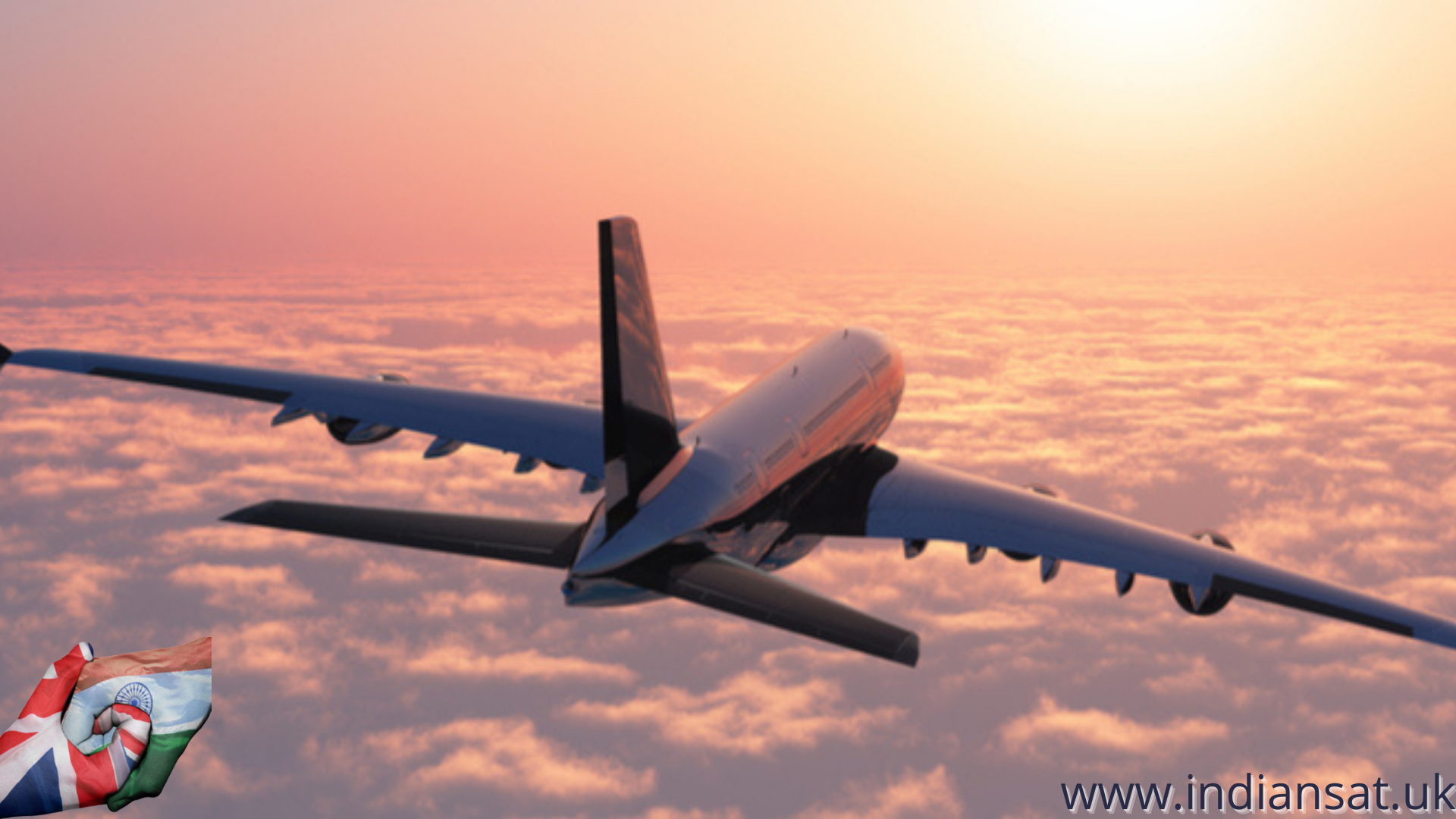Siddhant (surname withheld upon request) is excited about being selected for admission at a prestigious university in London for a master’s degree course. However, he and his parents are worried.
“There are several uncertainties before I can go and join my classes in the United Kingdom. India is on the red list of countries of the UK government because of the pandemic situation here and all visitors, including students, have to go through mandatory quarantine at a government-approved hotel, which is expensive.
“This new rule is exciting for me and I feel that it will give me the opportunity to look for work experience in the heart of London,” Siddhant said. “I hope I will be able to explore opportunities in British government organisations to get valuable experience after I finish my master’s course.”
Jaya (surname withheld upon request), too, is worried about the compulsory 10-day quarantine for Indian students en route to the UK this year and the additional expenses that she and her family are likely to incur because of the rule. She is set to join the prestigious University of Oxford for a master’s course.
She feels that the post-study work visa is an advantage for Indian students. “It provides a pathway for students to work in the UK and later seek permanent residence. Besides, the doors also open up to working in other countries,” Jaya said.
The post-study graduate route for students, which was announced in September 2019, will certainly add to the attraction of the country as an overseas education destination for Indian students, especially since some of the other popular education destinations such as Australia and New Zealand have shut their doors to Indians since the pandemic started.
“Our universities are global institutions which thrive on the contribution of international students, including those from India,” a British High Commission spokesperson in Delhi said. The graduate route will allow eligible international students — including those from India — who have completed undergraduate and master’s degrees to stay for two years and those who have completed PhD courses to stay for three years to work or look for work in the UK.
“The UK’s visa application centres in India are open and we continue to process applications for many visa categories, including student and skilled worker visas. The UK has modified visa rules to ensure students can study online until they’re able to travel to the UK for in-person tuition,” the UK High Commission spokesperson added. International students can get vaccines from the British National Health Service (NHS) like any other UK citizen — a factor that adds to the attraction of the UK as a study destination.
Numbers, too, show an increasing interest in studying in the UK among Indian students. According to the latest immigration statistics from the UK government, over 56,000 Indian students were issued visas to study in the country between April 1, 2020, and March 31, 2021 – a 13% increase over the previous year.
“The student demand for the UK has increased manifold since the PSW visa was announced late 2019. We have seen January 2021 to be the biggest intake so far for the UK and expect the September 2021 intake to be even bigger,” said Akshay Chaturvedi, founder and CEO of education consultancy Leverage Edu. “In a recent survey conducted by us, we found that 94% students this year are more keen to study abroad than last year and 75% of the students surveyed were UK-bound.”
Last year there were around 55,000 Indian students enrolled at UK universities.
“We campaigned for the post-study work visa to return to the UK for more than seven years and it has been a consistent demand from the Indian student community. The graduate route will really enhance the British offer to Indian students — study at world leading universities, and then stay back to do jobs or run your own business, earn money and pay back that expensive student loan you took,” explained Sanam Arora, founder and chairperson of the National Indian Students and Alumni Union UK (Nisau) — an organisation that has been advocating for the post-study work visa in the UK.
Nisau has now requested the UK government to look into eliminating or reducing the high cost of mandatory quarantine at a government approved hotel for Indian students — which is currently priced at a steep £1,750 for 10 days. “Up until June 11, there was a requirement for students to enter the UK by June 21, 2021, in order to be eligible to apply for the graduate route. We had requested the UK home office in April to extend this in view of the Covid situation in India and the UK government has accepted this request. The June 21 deadline has been extended to September 27, 2021,” Arora added.
While vaccinations are not required to enter the UK, travellers from any country must have a negative Covid test from an approved supplier before travelling. Indian students residing in the UK, on a valid student visa, are eligible for Covid-19 vaccinations in the UK, in line with the age group rollout requirements.
However, Yogesh Singh (name changed on request), who is joining a master’s course at the London School of Economics and Political Science (LSE), does not want to risk it by not being vaccinated and has gone ahead with the first dose. “I have to get the second dose of the vaccine and also get certain mandatory medical tests done before I can leave for the UK,” said Singh, a resident of Kolkata.
He feels that in the midst of the lockdown, all this will take more time than earlier. “Besides, we have to get to UK earlier keeping in mind the quarantine requirement, which gives us less time to plan our pre-departure,” he added. But he is upbeat about the post-study work opportunity and feels it is a boon for Indian students.
“For many Indian students, international study and work experience are important stepping stones when it comes to their career paths. With the introduction of this new visa from July 2021, I hope to see the numbers of Indian students coming to study in the UK return to the levels we saw ten years ago and far more,” said Lord Karan Bilimoria — a British-Indian entrepreneur, co-chair of the All Party Parliamentary Group (APPG) for international students, and president of the UK Council for International Student Affairs (UKCISA), which looks after the interests of 450,000 international students.
He added that applications to UK universities from India at the undergraduate level were up 25% for this year alone in spite of the pandemic. “This is in no doubt in response to the introduction of the post study graduate route.”
The PSW visa is open to all Indian students who have completed an eligible course at a UK higher education provider and is unsponsored, meaning applicants will not need a job offer to apply for the route. Furthermore, the visa is flexible with no minimum salary requirements nor caps on numbers.
“A positive change in the immigration policy of any country leads to an increased interest of students to pursue education there. With the UK’s shift to the two-year post study work permit, there has been a surge of Indian students seeking admission to various universities in the UK,” said Adarsh Khandelwal, co-founder and director of education consultancy Collegify.
What is UK’s post study work visa?
– It is a route for international students who want to work following the successful completion of a course of study at the UK, bachelor’s degree-level or above.
– This new graduate route will open for applications on July 1, 2021, allowing the UK to retain the brightest and the best international students to continue to contribute to society and the economy post-study.
– International students must have completed an eligible course at a UK higher education provider, with a track record of compliance with the government’s immigration requirements to apply for the graduate route. Students on the graduate route will be able to work or look for work after their studies for a maximum period of two years, or three years for doctoral students.
– The launch of the new graduate route shows that the UK government is continuing to deliver on its key manifesto promise to implement a points-based immigration system, which will attract talent and ensure that businesses can recruit the most highly-qualified individuals from across the globe to drive the economy forward.
– The graduate route will work for all corners of the UK, ensuring that communities in England, Scotland, Wales and Northern Ireland can benefit from talented individuals who want to stay after their studies.
– The graduate route will be unsponsored, meaning applicants will not need a job offer to apply for the route. There will be no minimum salary requirements nor caps on numbers. Graduates on the route will be able to work flexibly, switch jobs and develop their career as required.
– The new route will help the government to achieve the ambition set out in the international education strategy to increase the number of international students in higher education in the UK to 600,000 by 2030.
![]()






